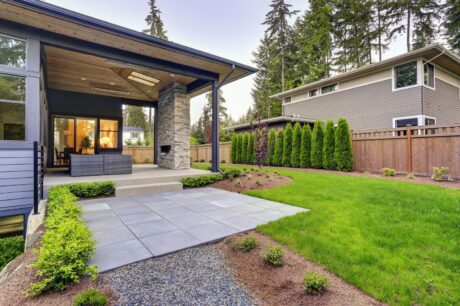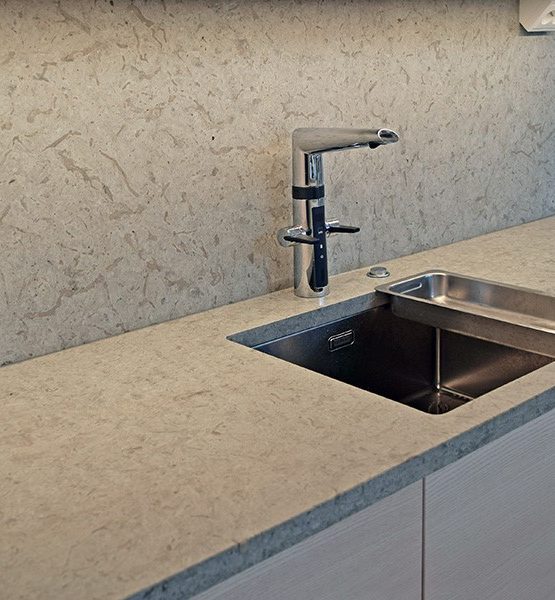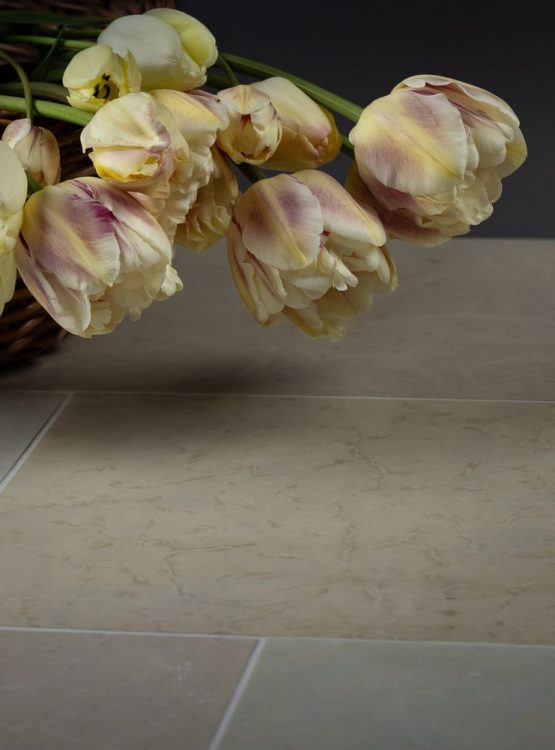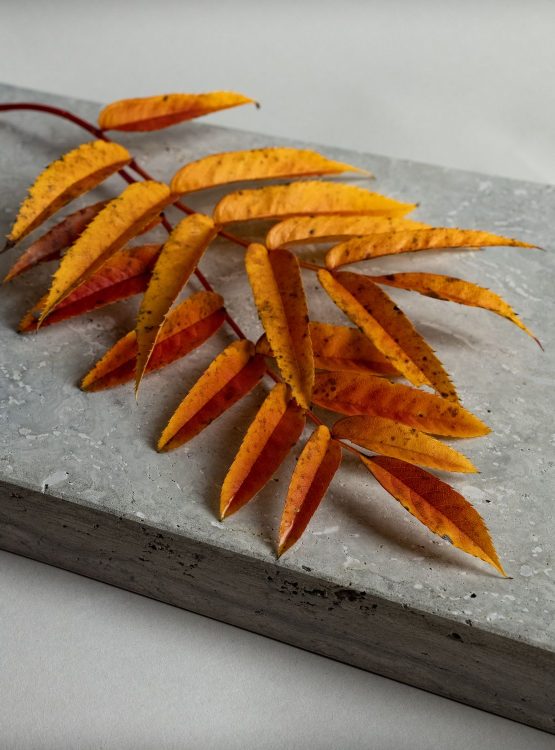Are you planning or renovating your garden and are considering using natural stone? But are you unsure if it’s the right choice? Then you’re in the right place – below we will bring out all the essentials for you to make the decision and give your home garden a new look.
Products made of Estonian natural stone are perfect for gardens in this part of the world, whether it’s a terrace, walkway, or some other object. In places where limestone and dolomite have always been easily available, they have been used in outdoor environments for centuries. Durability is evident from the fact that centuries-old buildings made of natural stone can still be admired today.
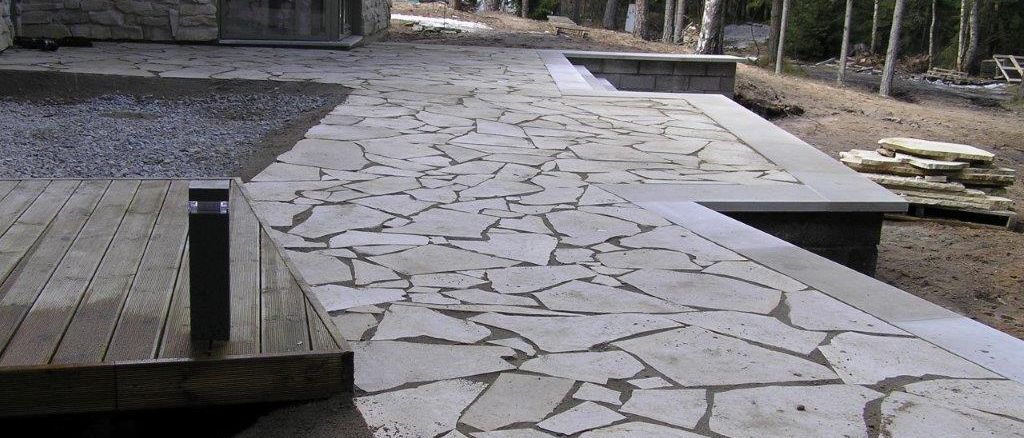
What are the pros and cons of different natural stones?
There is no doubt that our natural stones are suitable for outdoor use – one of their main advantages is durability. Our long experience shows that using the right material in the right place yields stylish and long-lasting results. Since each stone has a different look, you can also choose exactly the stone that looks the best to you.
It is difficult to point out any disadvantages of natural stone, but it is important to bear in mind that each material has the best place to use it. Our limestone Reval, for example, is ideal for ventilated facades as the stone stays dry there (we do not recommend using it on the ground).
However, the situation is different with dolomites. Our dolomites, Orgita from the Estonian mainland and Kaarma and Selgase from Saaremaa are ideal for use on garden paths, terraces, and even around outdoor pools. Many of our Swedish customers have ordered dolomite to cover the area around their villas’ pools (dolomite tiles are not suitable for use inside the pool, where they are constantly in contact with water). However, these stones are also suitable for terraces or around outdoor kitchens.
Recommended uses may vary, but these are materials that are well-suited to our Nordic climate. Limestone and dolomite are perfect for beautifying our outdoor areas.
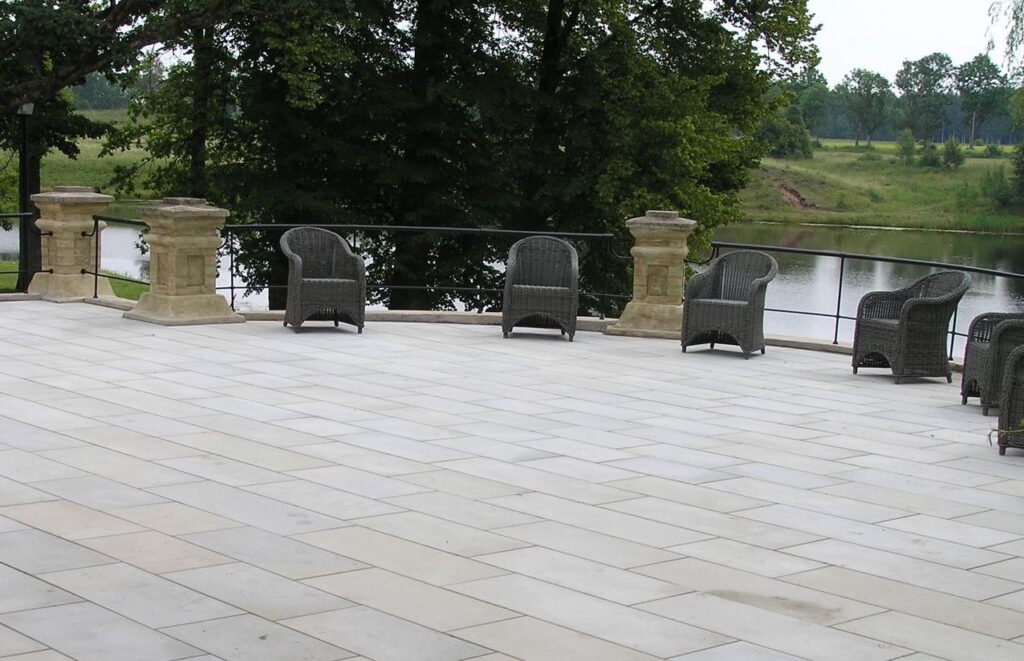
Is natural stone a cold material?
It may seem that stone is a cold and unwelcoming material, but this is not the case with limestone and dolomite. These stones are soft to the touch and cozy. One important advantage of using natural stone as garden tiles or on a terrace is the fact that the stone retains heat. Therefore, the stones are warm for a long time after being in the sun, which makes the surface of the stone particularly pleasant.
At the same time, there is no need to fear cold weather either. All our materials have successfully demonstrated their resistance to cold. By choosing, for example, tiles with calibrated and sawn surfaces for your garden, you can be certain that the stone will not become too slippery in rainy weather. Therefore, the material is also suitable for a terrace floor or around a pool. To ensure that the stone lasts for a long time, we have recommended the following to our customers:
- the tiles must have decent joints so that the water splashing out of the pool does not get between and underneath the stones;
- before using different products in the pool water, make sure to check how they can affect the natural stone (if necessary, contact the manufacturer);
- the immediate surroundings of the pool may need to be cleaned more frequently.
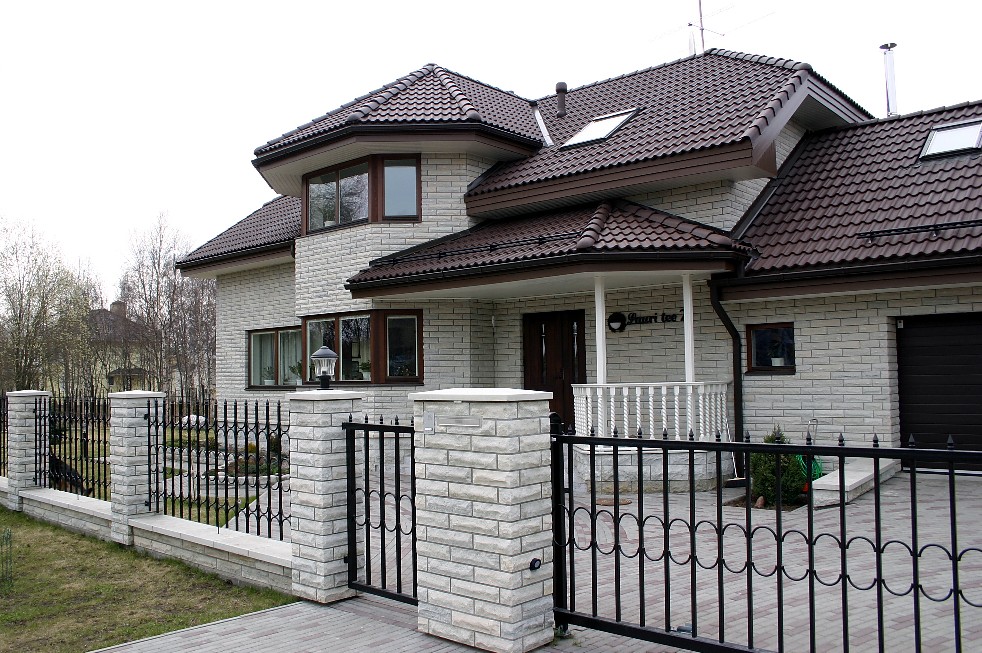
How to select the most suitable stone for your garden?
The large selection of materials can indeed be a bit confusing at first. It is no wonder that initially, it may seem impossible to understand which stone is best for you. We have previously discussed the suitability of different materials, and now we will look at the thickness and surface treatment of the stones.
Dolomite tiles that are suitable for outdoor use must be thicker than the ones used as floor tiles. The thickness of tiles used indoors ranges from 1 to 2 cm in our online shop, but the thickness of garden tiles should start at 3 to 4 centimeters. This is especially true if you plan to order tiles for walkways (we do not recommend driving on natural stone tiles).
The advantage of a thicker tile is a smaller likelihood of cracking and greater resistance to temperature fluctuations. Two factors are crucial in choosing the right thickness:
- what will the subfloor of the tiles be made of (concrete, sand, etc.);
- how will you be moving on the tiles (foot traffic only or also garden machinery).
The surface treatment of the tiles is also an important aspect. While the surface of floor tiles is usually polished or brushed after sawing, this is not necessary for outdoor use. It is possible to choose either a sawn surface or some special treatment for these tiles (such as planed, scratched, or bush-hammered surface). Calibrated and wire-sawn tiles are completely adequate in terms of slip resistance. As their surface is not further processed, this is also a cheaper option.
If you still feel unsure about making a decision, please contact us at shop@revalstone.com or call +372 504 7456. Together we will find out which size and surface treatment are best for your specific project.
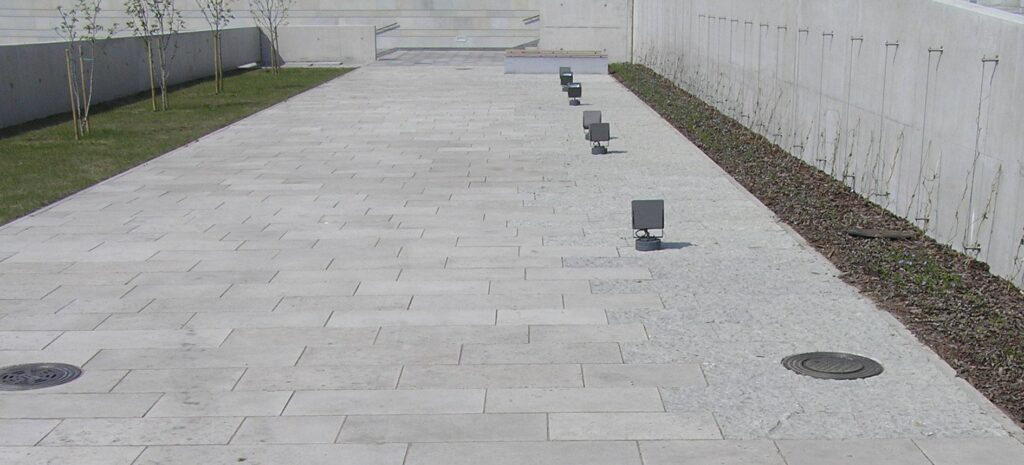
Anyone can handle caring for stone garden tiles!
The common opinion is that natural stone tiles are more difficult to care for than other materials. However, this is not true because all materials require maintenance to ensure a long service life! There is certainly nothing too challenging about maintaining natural stone products.
If you want to get an overview of what to keep in mind regarding maintenance, we recommend familiarizing yourself with the instructions for storing, installing, and maintaining natural stone.
Is it possible to order samples of our natural stones?
First, we recommend exploring the pages introducing our products (including photos). Then, we recommend ordering samples of the materials that interest you (you can of course also order samples of all our stones). One side of every sample is processed, and the other is unprocessed (sawn) – this way, you can also get an idea of the sawn surface, which is very suitable for use on terraces or in gardens.
In addition, the prices listed in the online shop can give you an idea of the price range. Although the tiles you will order for outdoor use are thicker than the ones sold in the online shop, the price will not be that much higher.
However, if you have a more specific request and what is available in the online shop is not exactly what you need for your garden, don’t hesitate to contact us. To find the right material and get a quote, send us an email at shop@revalstone.com. Describe your wishes as precisely as possible and, if possible, attach a (hand-drawn) sketch. This way, we can send you the most accurate quote as soon as possible. We look forward to hearing from you!

